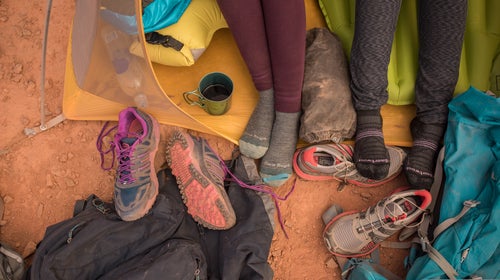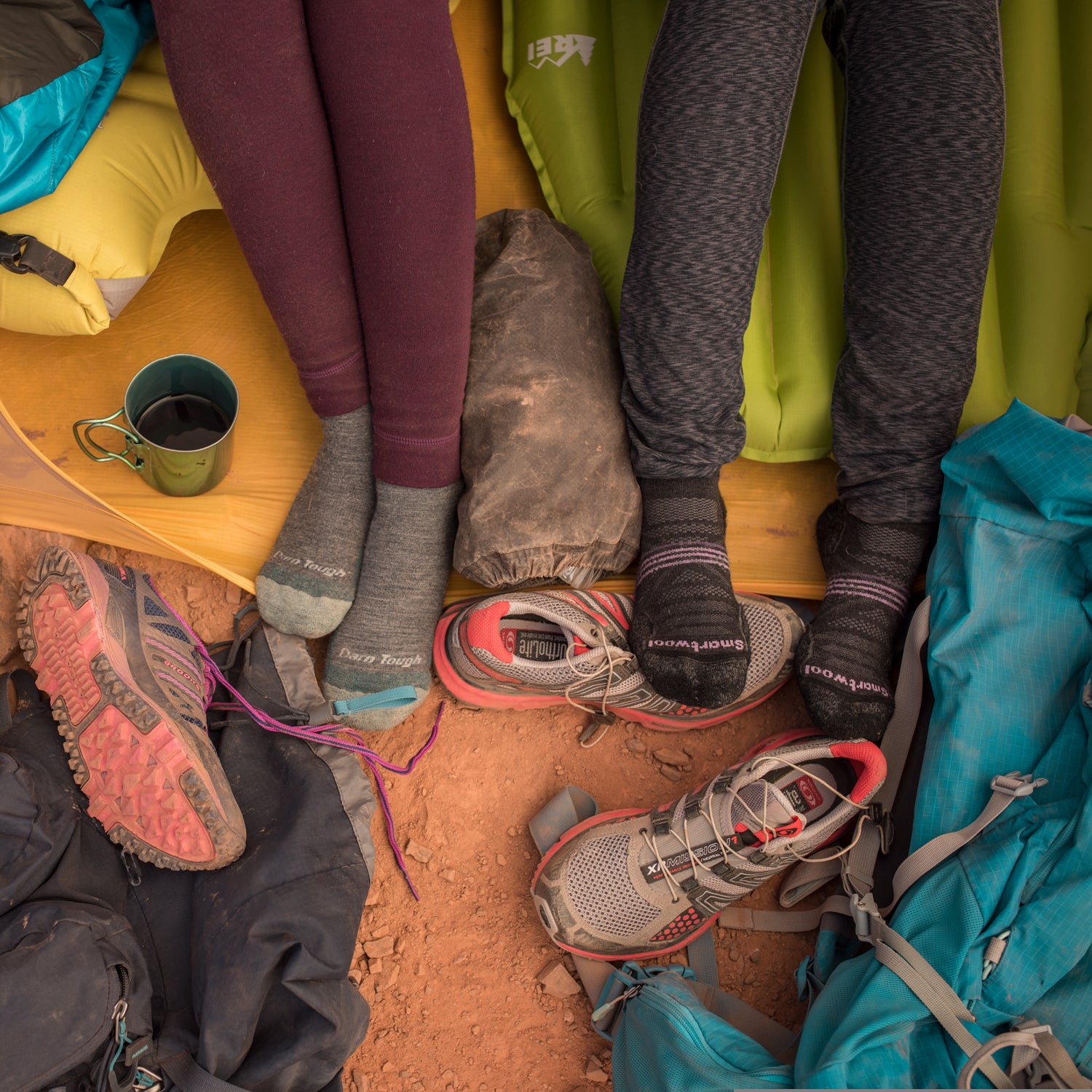In the future, a large selection of your new gear might be used. At least that’s what REI and Patagonia are pushing for, with two new resale sites: , from REI, and , from Patagonia.Â
Everything listed on REI’s used site, which launched this week, came from regional stores that let customers return gear they’re not satisfied with within one year of the purchase date. Historically, that used stuff was sold at REI's “Scratch and Dent” sales outside the brick-and-mortar retail locations. Those sales will continue, but now some of that gear will also be available online.Â
“We knew we were getting good products returned with plenty of life left in them, and we also realized those products might not sell just because the right customer didn’t show up on that garage sale day,” says Vik Sahney, REI’s ‎divisional vice president of sustainability. “So we started to look at how we could offer products to a broader market.”
Among the 20,000 used products on the new site, you’ll find moderately worn Merrell hiking shoes at less than a third of their original price, a like-new Jetboil cooking system at about $30 off, and a half-priced four-person Big Agnes tent. Some items, like helmets, climbing hardware, and ropes won't be sold online for safety and liability reasons. Sleeping bags won't be sold because they're hard to clean, and bikes and kayaks won't be sold because they're difficult to ship. REI will inspect each piece of gear before it goes up on the site. If a customer buys something she's not satisfied with, there's a 30-day return policy.Â
So far, Used Gear Beta is just a test, and REI will solicit customer feedback on whether to make it permanent. But they have high hopes for the marketplace. “Putting used gear back to use through a model like this will help us accomplish several important things,” Sahney wrote in an email to REI employees on Monday. “First, connecting pre-loved gear to new owners keeps that gear out of landfills. Second, we can offer the gear at a discount because it had a previous owner, which lowers the cost barrier to entry for someone who wants to try out a new outdoor activity. Third, because we work across 1,400 different brands, we can be a platform for not just a single brand’s goods.”
Patagonia has a similar program, which launched last month. The California brand has long encouraged consumers to fix and recycle their gear, with a Worn Wear van that travels the country fixing people’s equipment. The new used-gear site, which features previously-worn, inspected items that have been traded in by customers in exchange for store credit, seemed like a logical extension of that philosophy. “The research we’ve seen shows that extending the life of a garment by nine months has a greater environmental savings than any other improvement that can be made in the lifecycle of that product, from manufacturing to recycling,” says Nellie Cohen, Patagonia’s Worn Wear program manager. “Building high-quality, durable clothing creates a product that can be used sometimes through generations.”
The biggest challenge to this new model for both REI and Patagonia was figuring out how to best sell one-off items—a single shirt, in one size, for example—after spending years selling whole lines in a variety of colors and sizes. The solution was Yerdle, a San Francisco start-up that launched in 2012 and partners with Patagonia, REI, and other brands to help with the logistical and technological hurdles of buying back and re-selling used products. Yerdle built both company’s used gear websites, and also cleans, inspects, processes, and warehouses the returns. Once an item is purchased, Yerdle also packs, ships, and follows up with customer service.Â
“There’s a new sense of energy and urgency around resale,” says Andy Ruben, founder and CEO of Yerdle. “The outdoor gear we work with was made to be used, and far more of it grows old sitting around than gets worn out. When used gear is easy to shop, and backed by a brand like REI or Patagonia, it’s a huge step forward.”


